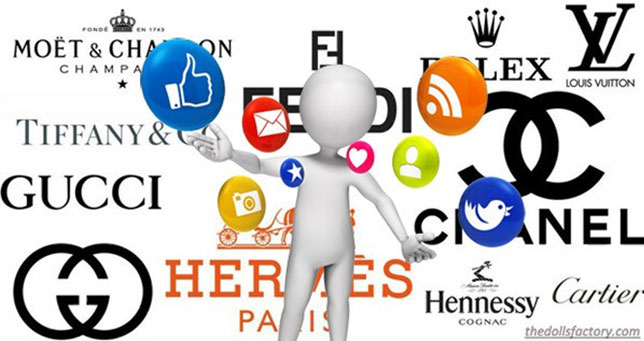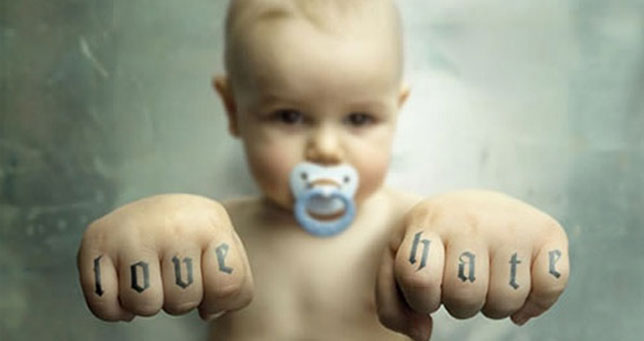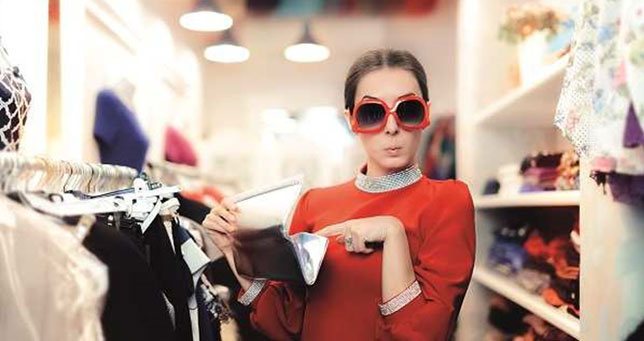Social Media Marketing And Luxury Consumption
- 21st Sep 2020
- 2380
- 0

Impact of Social Media

Social Media has been one of the most evolving and a vital factor for brands to reach out to their potential buyers in the age of Online media. The increasing use of social media has led to a new way of communicating between the buyers and sellers (Gallaugher & Ransbotham, 2010; Patel, 2013). Though over the years marketing literature has spoken very less about the influence of social media on luxury consumption (Godey et al., 2016; Martín-Consuegra, Díaz, Gómez, & Molina, 2019; Prentice & Loureiro, 2018). Social Media is a platform for people, organization, to interact at a social, commercial and political level (Alawan,2018). Luxury Brands are very Brand conscious in nature. They do not like to dilute their brand by marketing on all platforms, though social media is still one of the strongest ways of marketing. Today, luxury brands build relationships through social media and use it to enhance brand experiences and sales (Corcoran & Feugere, 2009; Kim & Ko, 2010; Phan, Thomas, & Heine, 2011). According to (Mehta,2000) Attitude Advertising is strongly associated with Brand Recall and purchase intention. There are a few important components for social media which is positively correlated with luxury consumer brand equity like, entertainment, Interaction, Trendiness, customization, and word of mouth. According to (Kim and Ko,2012) social media increases consumers perception in a positive manner towards a brand equity. Brand equity is what Luxury Brands thrive on. Luxury consumers are not like the past and they have a very different perception in the modern world. According to (Dubois & Laurent, 1996; Dubois, Laurent, & Czellar, 2001; Dubois, Czellar, & Laurent, 2005; Kapferer & Valette-Florence, 2018) consumers are characterized by moderate purchasing power and defined as ‘excursionist. Luxury growth has been quite steady in the past few years showing potential growth of the Luxury market which is often considered ‘Niche’. According to (The Boston Consulting Group, 2019) the luxury market has grown, and the consumption of luxury goods reached 920 B€ in 2018, increasing from 915 B€ in 2017, with 4–5% expected annual growth until 2025. In the context of luxury consumption, interaction involves the reproduction of users who share, spread and defend their ideas, values and experiences and who support brands and products (Kim et al., 2012). To be able to interact with its consumers is very important for Luxury brands in today’s digital age, as luxury brands are always in a delicate place because of their prices, their source of raw materials used and their image. Millennials are very associated with social media these days. A few Luxury Brands have been under the radar for the past few years because of different ethical and environmental aspects that did not indulge well with the millennial’s society and the environmentalists. Use of animal skin has not gone down well for brands like Burberry, Dior, and others in the past. Understanding ‘Social corporate responsibility’ and maintaining the ‘heritage’ and ‘brand awareness’ is very important and a huge challenge in social media marketing for luxury brand managers. Luxury brands account for a significant portion of consumer product sales. Sales revenue of Louis Vuitton Moe¨t Hennessy (LVMH), the world’s largest luxury brand group, was 20,320 million euros in 2010 (Bloomberg.com, 2011). In the multifarious social media contexts, consumers increasingly have access to opinions from other consumers outside their immediate social circle (Dhar and Chang, 2009). This shows that consumers have the ultimate power in the social media world and that they can either trend a brand in a positive or negative way. According to (Greenhill,2012) 18-29-year olds are the fastest consumer growing segment in the world, as they exhibited 31% growth compared to only 28% of the Baby boomers. Though ‘Baby boomers’ are the core of luxury consumption in the past, the future and present are changing. According to (Atwal & Williams, 2009; Ramchandani & Coste-Manie `re, 2012), As luxury branding has become increasingly complex, attempting to provide an experience by relating products to the lifestyles and aspirations of consumers, there is a need for luxury brand advertisers to adapt to this market change. Luxury, over the years has been considered to fulfill an appetite for symbolic meanings. Though many still believe that Luxury is for only the elite, the mentality of luxury consumers and luxury brands has seen quite a reluctant change over the years. The Luxury goods consumption has moved from being Europe’s elite to Asia and the rest of the world. It certainly has increased year by year. Importantly, it sheds light on something every marketer dream of – the apparent paradox of charging high prices based on exclusivity while selling your product to everyone. The luxury brand industry has managed to do just that (Chadha and Husband, 2006).
Luxury: ‘Then vs Now’

Luxury endorsements have been one of the biggest reasons over the years for luxury consumption. Celebrity endorsements like Football star Lionel Messi endorsing for ‘Jacob &Co.’ or having a self-image portrayal through the brand like the guy driving the ‘Porsche’ in the advertisement, and you think you want to be driving one. Luxury represents self-image, personal satisfaction and public approval in society. Luxury in the past was always about society approval and has been till date. According to (Garfein, 1989), In some ways, a higher price makes consumers feel superior, one of the rare elites who can afford these products. But in today’s modern luxury, consumers have more knowledge towards what they are purchasing. Luxury brands have had to be much smarter about what kind of content they post on social media and try to portray their brand heritage as much as possible. Luxury consumers are looking for luxury brands that are very transparent in their approach, specially on social media. The Luxury consumption influences have been more about the movement of brands and what they stand for. The modern luxury consumers compared to the past do not just want their personal satisfaction but want to be associated with a Luxury brand of identity and allure. Luxury brands like Burberry, Hermes, Louis Vuitton, Armani have started opening boutiques in different countries to attract all kinds of customers and give them the best experience possible. Burberry has been one of the leading brands and has a history of using social media.
Luxury consumers want to see insights of behind the scenes, want to be asked about suggestions on latest trends, they want to know what every brand is representing itself and how are they contributing to the environment. These reasons have made the luxury market very diverse and luxury is more accessible to a lot of consumers.
When we think of Luxury, we think of expensive and rare accessibility. Modern luxury through social media has redefined what luxury brands are all about. Even though covid-19 crisis has hit everyone financially, specially the luxury sector, social media is keeping luxury alive in these tough times. People want to see how luxury brands are adapting to changes and how the brands are interacting with their customers. Luxury brands are using Augmented reality to show insights on their upcoming products through social media. Consumers don’t just want the luxury product itself but also the experience. Luxury brands have started believing in catering to more online selling rather than store experiences in the past few years. Brands like Gucci, LVMH, Lamborghini, are all giving more experience on their website. Luxury consumers already know what they want to buy, though there is no sense of loyalty within consumers as luxury brands are looked at because of their brand image and not the product itself.

Is the true heart of luxury concept changing? Are people preferring more of online shopping than store experiences? Time has really defined the luxury industry. Luxury products are no more a rarity and it is not as exclusive as before. Luxury Brands are more under the radar due to different customer purchase intentions. Most luxury sales in the clothing industry is through online sales. Luxury car brands are giving you the option of online store experiences and to be able to customize their future car before they enter a store.

Though many would argue true luxury lies within in store experiences, changing times say otherwise, as luxury is taking a turn in a different direction. Luxury consumers are not just Hedonistic in nature but are more inclined towards a brand of purpose, identity and reason. People although still buy luxury in Asian countries which is considered ‘New Money’, European luxury consumers who are considered as ‘Old Money’ have started to take a turn in their purchase behavior. Social Media has given more power to the consumers and luxury brands must be as careful, as they can have their reputation hampered or credible, depending on the kind of content and engagement they use on their digital platforms. Though Social Media is a constantly changing aspect, Luxury brands have a love-hate affair with social media. To manage customer support on social media is one of the biggest challenges for luxury brands to cater to.
 Prithvi Ramesh
Prithvi Ramesh


Comments
No comments yet.
Add Your Comment
Thank you, for commenting !!
Your comment is under moderation...
Keep reading luxury post